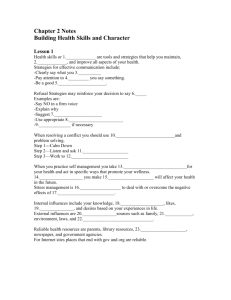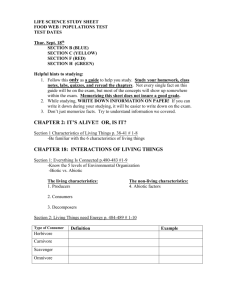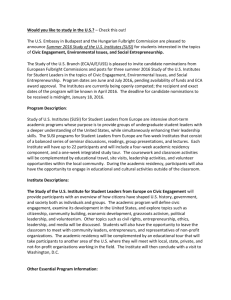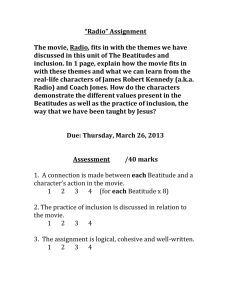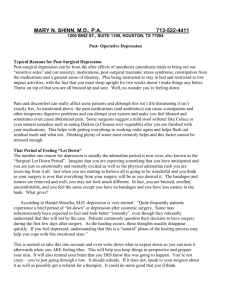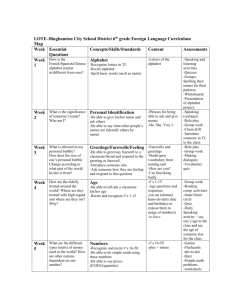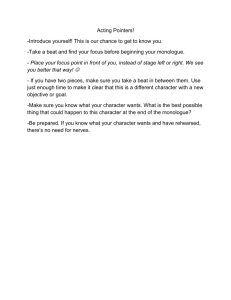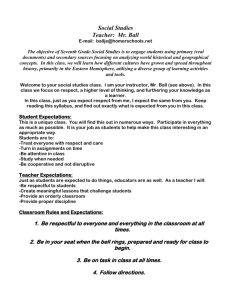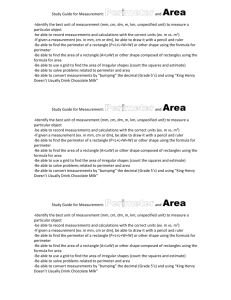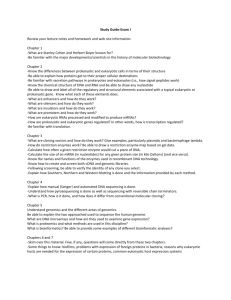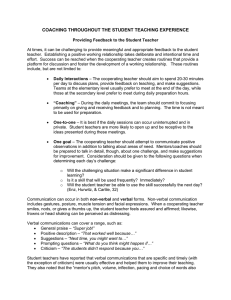Exam Study Guide
advertisement
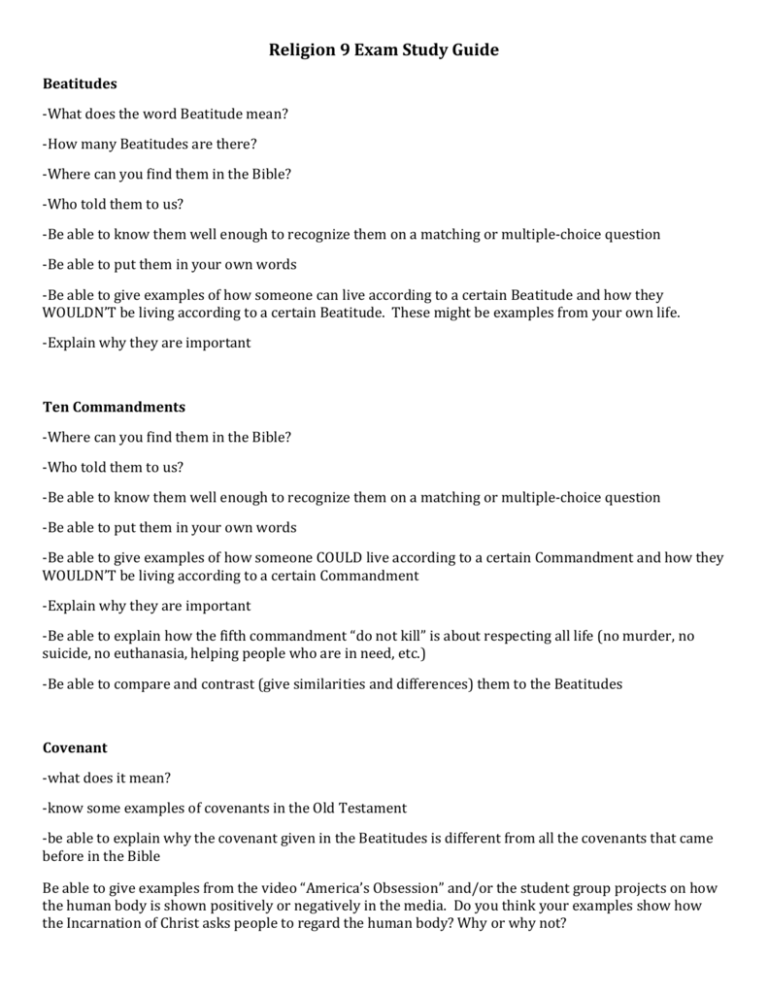
Religion 9 Exam Study Guide Beatitudes -What does the word Beatitude mean? -How many Beatitudes are there? -Where can you find them in the Bible? -Who told them to us? -Be able to know them well enough to recognize them on a matching or multiple-choice question -Be able to put them in your own words -Be able to give examples of how someone can live according to a certain Beatitude and how they WOULDN’T be living according to a certain Beatitude. These might be examples from your own life. -Explain why they are important Ten Commandments -Where can you find them in the Bible? -Who told them to us? -Be able to know them well enough to recognize them on a matching or multiple-choice question -Be able to put them in your own words -Be able to give examples of how someone COULD live according to a certain Commandment and how they WOULDN’T be living according to a certain Commandment -Explain why they are important -Be able to explain how the fifth commandment “do not kill” is about respecting all life (no murder, no suicide, no euthanasia, helping people who are in need, etc.) -Be able to compare and contrast (give similarities and differences) them to the Beatitudes Covenant -what does it mean? -know some examples of covenants in the Old Testament -be able to explain why the covenant given in the Beatitudes is different from all the covenants that came before in the Bible Be able to give examples from the video “America’s Obsession” and/or the student group projects on how the human body is shown positively or negatively in the media. Do you think your examples show how the Incarnation of Christ asks people to regard the human body? Why or why not? Incarnation -definition -how does the Incarnation of Christ guide us to cherish and look after our bodies? How does it teach us to respect the bodies of other people? Virtue – definition and examples Sacred - definition Chastity - definition Sexual Intimacy - definition “Costs” of Pre-marital sex according to Pam Stenzel (Physical, Emotional and Spiritual – know at least 1 example of each) Know how to chart relationships on the table we used in class and explain if the relationships are healthy or unhealthy Morality – definition Moral – definition and example Immoral – definition and example Amoral – definition and example Conscience -non-religious and religion definition -explain why you have to and how you can form your conscience -explain the things that help us form our consciences (and how God influences them all): -Scripture -Tradition of the Church -Magisterium -Prayer -Other: laws/rules of society, parents/role models, peers, culture STOP method of decision-making – be able to explain “S” “T” “O” “P” and apply it to examples of decisions someone has to make Know how to write and explain scripture passages in reference form (Book of Matthew Chapter 6 Verses 2 to the end of 11 Mt 6:2-11) (Make sure you know the short form for the 4 Gospels Matthew, Mark, Luke and John) Gospel – definition Testament – definition Grade 9 Religion Exam Outline: Section A B Question Type Definitions (Fill-in-theblank from a word bank) Site Passage Category Marks Time Knowledge 15 5 Min Knowledge 5 15 Min Application 5 (Read and analyze) C Short Answer Thinking 20 25 Min D Short Answer Application 15 25 Min Communication 10 Communication 10 E Long Answer 15 Min (Essay) REVISION 5 Min EXTRA TIME 30 Min FINAL SUMMATIVE MARK Cumulating Activity- Inspirational Person Exam: Total 20% 10% 30% Examples of questions for each section: Section A: Definition 1.________________________ A statement of belief and conviction that can be either a verbal agreement or a formalized legal document. The root of the name for the two main divisions of the Bible. Section B: Site Passage Read the following passage from Luke 15: 4-7. “The Parable of the Lost Sheep” and answer the questions in the space provided. “Which one of you, having a hundred sheep and losing one of them, does not leave the ninety-nine in the wilderness and go after the one that is lost until he finds it? When he has found it, he lays it on his shoulders and rejoices. And when he comes home, he calls together his friends and neighbors saying to them, ‘Rejoice with me, for I have found my sheep that was lost’. Just so, I tell you, there will be more joy in heaven over one sinner who repents than over ninety-nine righteous persons who need no repentance” 1. 2. 3. 4. Who is the Shepherd in this story? Who is the ‘lost sheep’? Who are the flock (the other 99)? How can this passage relate to your own life and/or concepts taught in the course? Section C: Short Answer What is the Incarnation? (2T) How does the Incarnation help us to understand the value of the human body? (1T) Section D: Short Answer How are people called to be chaste at various stages of their life? (examples- young adult, adult, married, older adult, etc). Section E: Long Answer Essay about the Beatitudes: Question- Which of the beatitudes is/are the most challenging to yourself or other young people? Explain why.
